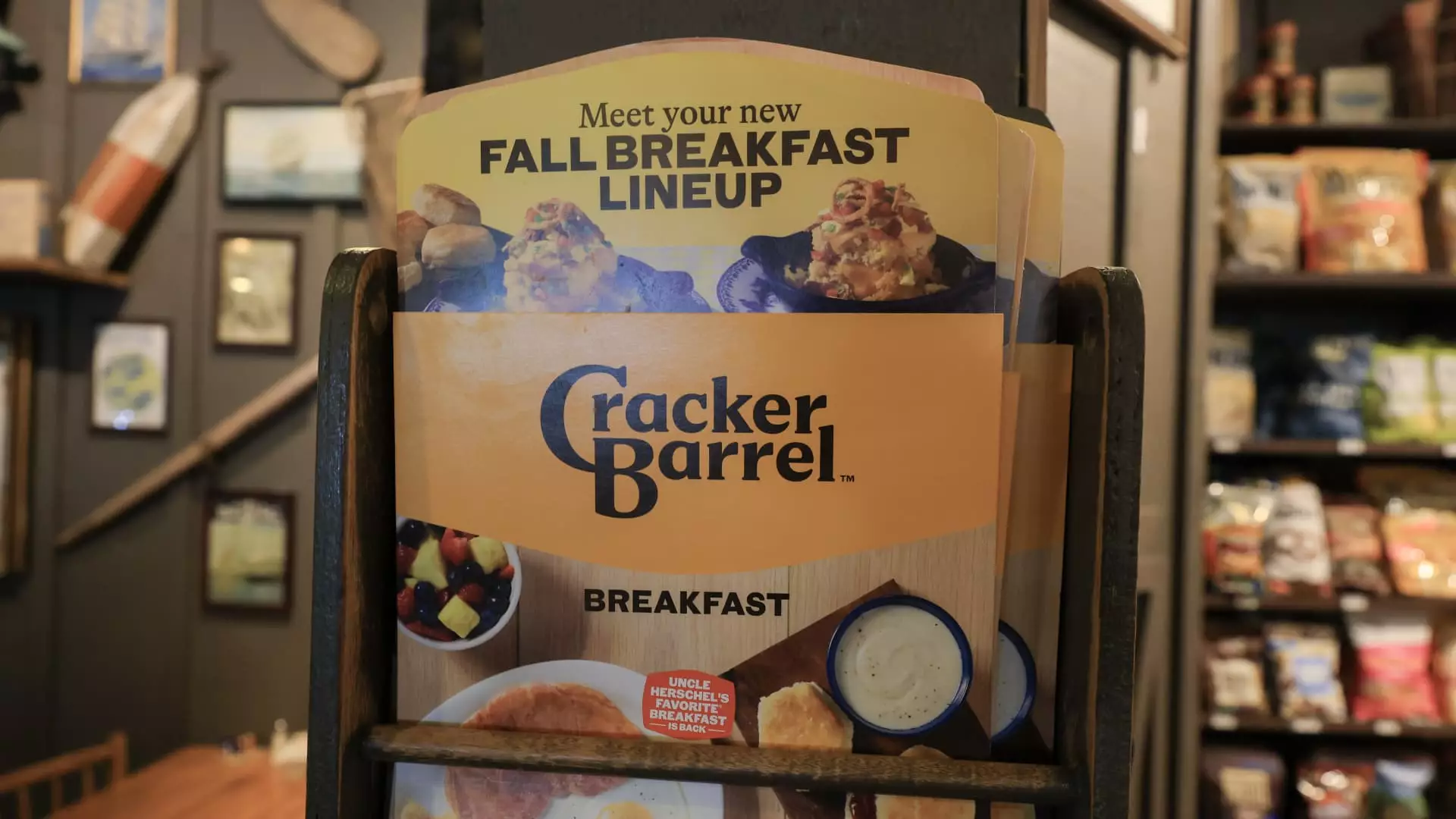Cracker Barrel’s recent logo overhaul exemplifies how corporate America often abandons its roots in a misguided pursuit of relevance. The chain, once a bastion of nostalgic Americana, has lightened its visual identity by ditching the beloved image of the man leaning against a barrel—an instantly recognizable symbol of its rustic charm. In its place, a minimalist, less evocative logo now adorns its branding, glossing over decades of tradition in favor of a sterile, modern aesthetic. This decision reflects a larger trend: the erosion of cultural icons under the guise of “progress,” when, in reality, it signifies capitulation to societal pressures that threaten authentic American heritage.
Cracker Barrel’s removal of the phrase “old country store” and the man against the barrel isn’t just about visual refreshment; it’s an attempt to strip away the essence that made the brand special. The company claims its colors are inspired by breakfast staples—an attempt to imbue warmth and familiarity—but such surface-level changes cannot compensate for abandoning historical symbols that conveyed a sense of comfort, nostalgia, and identity. The move suggests an underlying disdain for tradition, replacing it with a sanitized, superficial image that risks alienating loyal customers who see the shift as a betrayal of their values.
The Political Undertones and Cultural Betrayal
The backlash surrounding this rebranding illuminates a broader cultural crisis: the diminishing of American symbols under the guise of inclusion. Figures like Donald Trump Jr. and conservative commentators have criticized the overhaul, insinuating that the change is driven by a desire to erase national identity in favor of “diversity” and “wokeness.” It’s a narrative designed to stoke fear among those who regard tradition as integral to American life, framing corporate changes as a cultural betrayal.
Yet, this perspective ignores the fact that corporations, especially brands rooted in American history, should serve as custodians of cultural memory rather than agents of erasure. The criticism—often amplified by social media—misses the nuance that adaptations don’t necessarily mean abandonment. The real issue is how superficial alterations, motivated by a misguided virtue-signaling effort, compromise the brand’s authenticity and alienate the very community it claims to serve. When a corporation sacrifices its identity to appease shifting political winds, it not only undermines its credibility but also accelerates the decline of American cultural cohesion.
The Cost of Political Correctness and Shallow Progress
Cracker Barrel’s situation is emblematic of a dangerous trend: businesses prioritizing superficial “progress” over substance. Their claim of maintaining “rich history” and “authentic charm” rings hollow when core symbols are replaced with empty insignias. The company’s attempts at modernization, including interior redesigns described as brighter and more welcoming, do little to address the fundamental disconnect between corporate messaging and customer sentiment.
The backlash reveals a broader societal resentment: a desire to preserve authentic American tradition against relentless pressures to conform to a sanitized, politically correct narrative. Many consumers appreciate brands that honor their history—those that resonate with shared values instead of succumbing to politically motivated reshaping. In caving to these trends, companies risk losing their identity and, ultimately, their loyal customer base. The situation also serves as a cautionary tale about the peril of sacrificing cultural integrity for fleeting social approval.
A Reflection on Commercial Identity and Cultural Integrity
Cracker Barrel’s story is about more than a logo or interior decor; it’s about the soul of a brand that has been diluted in the name of “modernization.” This move symbolizes the decline of genuine cultural symbols, replaced by generic, forgettable branding designed more for social media appeasement than for meaningful connection. The company’s small market cap underscores how such missteps can financially destabilize brands that are already hanging in a delicate balance.
In its pursuit of “progress,” Cracker Barrel seems to have prioritized political correctness over its history, risking irreparable damage to its reputation. True progress should involve respecting and preserving cultural icons, not erasing them to fit a fleeting trend. Such superficial changes reflect a broader societal malaise—the loss of authenticity, the relegation of tradition, and the relentless encroachment of superficial politics into everyday life.
Cracker Barrel’s fate is a stark reminder that when corporations abandon their cultural roots in fear of controversy, they do so at their peril. Authenticity and tradition are not liabilities; they are the foundation upon which enduring brands are built. Sacrificing them for cheap applause only hastens their decline and further fragments the cultural fabric Americans once celebrated.


Leave a Reply